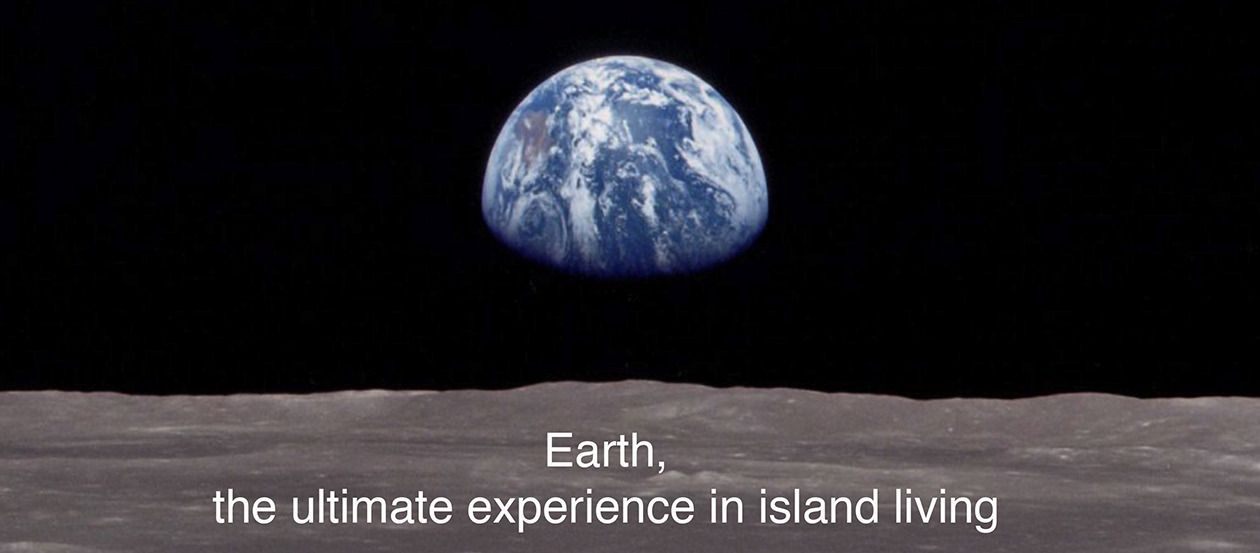There is a scene early in the movie Top Gun: Maverik to which I am particularly sympathetic. It immediately follows the moment when Maverick (Tom Cruise) has tested an experimental aircraft passed its breaking point. You then see Maverick walking into a small rural town, entering a diner and after drinking a glass of water asks, “Where am I?” To which a young boy answers “Earth.” He doesn’t say the name of the town. He doesn’t give the name of the diner. Instead, he names the planet on which this visitor has landed.
How many of us would have given Earth as the answer? How many times a day, or a week, or a month, or a year or a lifetime do we consciously acknowledge that we live on earth? I suspect it is not very often. We usually declare or define our location by some subtitle of geographical or politically defined nomenclature – country, state/province, city/town, street/landmark depending upon our assumption of the questioner’s knowledge of the area.
And therein lies the rub. All the answers we would normally give tend to focus on our separateness. But to solve many of the issues we are confronted with today, we have to find common ground.
“We are all Earthlings” Nicole Stott
“Earth is what we all have in common” Wendell Berry
Despite the reality that we all live on the same planet, we have not developed a planetary mindset for utilizing a fixed and shared resource base for multiple millennia. If we had, we would not have generated the current environmental conditions that are disrupting and fracturing social, financial, and political structures upon which we have blindly relied.
When you come to a fork in the road, take it. Yogi Berra
And that is where we are – at the fork in the road. Self-structuring systems grow to a stage at which they must reorganize to maintain their effectiveness, efficiency, and adaptability. The issues that confront us are no longer local or even regional. They are transboundary. They are planetary. Nor can the issues be resolved separately or sequentially. They need to be resolved simultaneously and synergistically as they have a common origin. This type of wicked problem solving requires a new level of consciousness and collaboration both to understand the interplay of the issues, as well as be able to discover the solutions inherent in the mix.
Unfortunately, much of the educational system has been structured to promote siloed thinking when we now need systems thinking. In my educational background, you learned subjects – math, history, literature, science, etc. But you learned them in isolation, in their own “room,” and you were not encouraged to mix the topic together. In essence, your education shaped both your knowledge and your ignorance. Your knowledge by what was discussed, and your ignorance via all the topics never mentioned.
What we know now is that the past is not a road map to a successful future for humanity since we have built and designed with disregard for the future. And we want a future.
I skate to where the puck is going to be, not where it has been. Wayne Gretzky
We cannot chase the future. We need to intercept it. We need to implement at scale the solutions we have for agriculture, energy, multimodal transportation, urban redesign, building retrofits, biophilic design, adaptive biomimicry, generating a circular economy, and ending subsidies for products that increase health risks to people and the environment.
“We have wind, solar, geothermal, hydro, electric cars. We have batteries, heat pumps, energy efficiency. We have 95% of the technologies right now that we need to solve the problem,” Mark Jacobson, Stanford University
In the future, there is no pollution and there is no trash, there are only byproducts that can be readily used in other parts of the system. We need to shift from treating symptoms to eliminating causes. I understand the need for cooling centers during the heat waves, but the goal needs to be lowering the average global temperature so entire cities are cooler.
We are not only responsible for what we do, but also for what we refrain from doing. Lao Tzu
These activities are bound to be distressing, disturbing and disruptive to many. But think of costs, the damages, the loss of life, the suffering and displacement of millions of people and the currently incalculable loss of nature and beauty if we do not rapidly engage and gear up the process.
If there must be trouble, let it be in my day, that my child may have peace. Thomas Paine
And isn’t peace and a better life the promise each generation makes to the next? So, shouldn’t we do our best to keep it?
Tim
